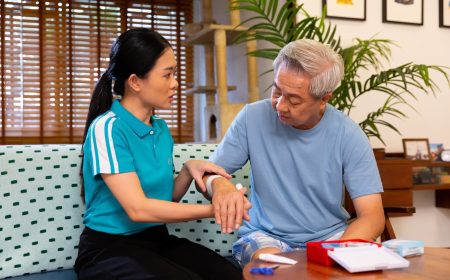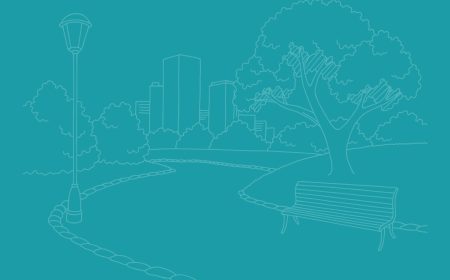Your loved one has been diagnosed with a stroke - seeing them cope with the loss of their abilities will be painful and lifestyle changes have to be made to support them. But there is hope - with patience and support, it is possible for your loved one to make good progress in recovery through rehabilitation.
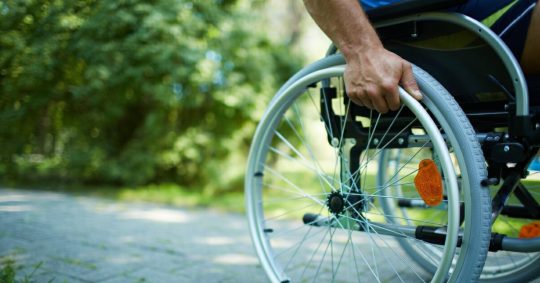
Ischemic stroke makes up 79.9% of stroke cases in Singapore
Scroll down to learn about stroke rehabilitation, or jump to the following sections:
Post-stroke signs and symptoms
People who have had a stroke may live with a number of physical and cognitive symptoms as stroke affects the brain. Here are some of them:
- Paralysis can affect one or more limbs, or the entire side of the body, including the face. The person may feel weakness or stiffness in their arms and/or legs, and have problems with posture, balance and walking. In some cases, the patient may also have problems speaking and swallowing food and liquids, making them at risk of choking.
- Pain or an altered sensation in certain parts of their body, such as prickling and heaviness - Post-stroke pain in the muscles and joints can also develop some time after, and may be accompanied by headaches.
- Speech and language impairments, such as difficulty speaking, understanding language, reading and writing - In Singapore, about a third of stroke survivors are diagnosed with aphasia. Such persons may have difficulty expressing their feelings and needs.
- Changes in cognitive abilities and memory - Such changes make it difficult for some patients to make plans, follow through with chores and manage finances for daily transactions.
- Personality changes and emotional disturbances are sometimes seen among stroke survivors. Depression is one of the most commonly experienced psychological effects after a stroke, as patients go through fear, anxiety, anger or grief over their loss of abilities. Some patients may also experience emotional incontinence, where there is a higher tendency to cry or even laugh involuntarily.
Caregivers can help their loved ones manage post-stroke recovery by keeping track of symptoms and following up on appointments with their healthcare team. They may also find a support group for stroke survivors, and tap into professional help for caregiving and stroke rehabilitation.
What is stroke rehabilitation
Stroke rehabilitation is a process that helps stroke survivors manage post-stroke symptoms and regain skills that were lost. It is usually administered by a team of caregivers and specialists. The timeline for recovery differs for every patient, depending on their condition. Here are some forms of therapy that can help your loved one through their recovery from stroke:
- Physiotherapy helps stroke survivors rebuild their muscle strength and coordination. A physical therapist (physiotherapist) prescribes and guides them through exercises that improve strength, balance, flexibility, endurance and mobility. The physiotherapist also guides the stroke survivor through re-learning how to get up from bed or a chair, and transfer themselves from point to point. They may also help them to re-learn how to climb stairs and walk about in the community. Learn more about our physiotherapy services.
- Occupational therapy helps a stroke survivor re-learn how to perform specific activities of daily living, such as grooming, dressing, bathing and eating. Occupational therapists will also be able to recommend grab rails and wheelchair ramps to make the home a more conducive and safe place for recovery. They will also be able to provide prescriptions for mobility devices, and cognitive rehabilitation if necessary. Learn more about our occupational therapy services.
- Speech therapy helps stroke survivors exercise and strengthen their face and throat muscles so that they may speak and swallow more easily. Speech therapists will also recommend the correct diet, such as liquefied food, to reduce the risk of choking. They can also assist stroke survivors with language therapy so that they can be better understood by the people around them. Learn more about our speech therapy services.
- Emotional support is an important aspect of post-stroke care. Some stroke survivors feel depressed or anxious after their stroke and unsure about the road to recovery. A medical social worker or psychologist can help with connecting patients to a counsellor, who can help them deal with these feelings. Family members and friends also play an important part in helping stroke survivors stay motivated to continue their rehabilitation.
- Caregiver training and support is another important aspect of post-stroke care. Caregiver training will be provided by the various healthcare professionals as the caregiver learns to cope with their new responsibilities. It is also vital for caregivers to practise self-care to maintain good mental and physical health.
As soon as a doctor deems a stroke patient medically stable, it is important for the patient to start stroke rehabilitation.
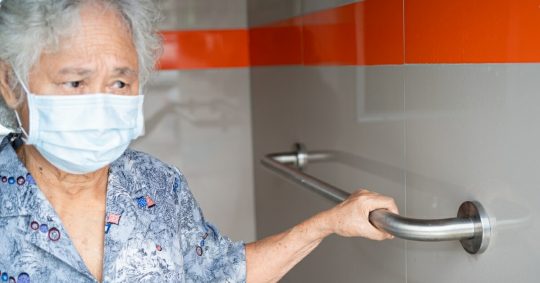
Prevent falls and make the home a safer place to age in with these tips.
Where to get help with stroke rehabilitation and care
Stroke rehabilitation and care can take place in the home or at a centre, depending on the needs of the patient. NTUC Health provides a range of care solutions to meet the needs of stroke survivors and caregivers through their journey:
Home-based stroke rehabilitation
Some patients may experience difficulty leaving the home due to problems with mobility, such as the home being located on a non-lift landing level, having steps at the entrance to the home, or having medical equipment that requires them to stay in place. Our care team can visit your loved one at home to help them through the stroke recovery process.
With Home Therapy, we can tailor a rehabilitation plan that includes exercises to maximise mobility, strength, speech and swallowing skills after a stroke. This includes:
- Home Physiotherapy
- Home Occupational Therapy
- Home Speech Therapy
Patients can also see our doctors and private nurses for medical checkups and post-surgery nursing procedures.
Centre-based stroke rehabilitation
Patients who are able to leave the home and visit rehabilitation centres can benefit from Day Rehabilitation services where they can attend therapy sessions to regain functions and manage post-stroke symptoms. Seniors living with mild stroke may also be suitable for regular Senior Day Care, where they can take part in physical activities and stay socially connected.
Patients who are medically stable but bedbound, or living with long-term disabilities and require round-the-clock care may be eligible for our nursing homes. Residents with a history of stroke can undergo a rehabilitation programme to improve their daily functions, manage symptoms such as pain and incontinence, and improve their overall quality of life.
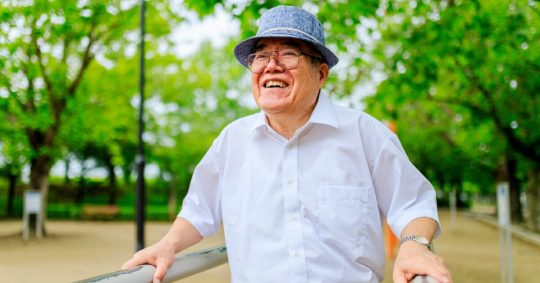
Stay positive on the road to recovering from stroke!
What factors affect the outcome of stroke rehabilitation
Stroke recovery is a complex process that varies from person to person. Over time, the patient’s post-stroke symptoms may change. While the timeline varies from person to person, it is important to start on a rehabilitation programme as soon as possible. Some factors that affect the outcome of stroke rehabilitation are:
- Physical factors including the age of the patient and severity of the stroke
- Emotional factors such as motivation to follow a rehabilitation and therapy plan
- Social factors such as the support of friends and family in the long term
- Therapeutic factors including an early start to rehabilitation and expertise of the rehabilitation team
Caregivers can also tap into professional care services during their caregiving journey, especially when they need support to care for their loved ones. Stay positive, and keep encouraging your loved ones on the road to recovery!
Stroke recovery FAQ
- How can stroke survivors prevent another stroke?
Sticking to the prescribed rehabilitation routine and eating healthily are essential components of preventing another stroke. Quitting smoking is also crucial, as smoking is a major risk factor for stroke. Learn more with our article Stroke Recovery: Caring For A Patient At Home.
- Who are the professionals that help with post-stroke rehabilitation?
A stroke rehabilitation team may consist of doctors, nurses, physiotherapists, occupational therapists, speech therapists and dietitians. There may also be medical social workers and counselors involved in the recovery process.
- How long does stroke rehabilitation last?
Depending on the severity of stroke and related complications, rehabilitation can last anywhere from a few months to a few years. A stroke rehabilitation team can create a care and recovery plan suitable for your loved ones. Continue to encourage your loved ones to stay positive and dedicated to their recovery.
- How may I find more support for post-stroke recovery?
Find more support and programmes for stroke recovery, as well as caregiver resources with the Singapore National Stroke Association.
Summary
Singapore Citizens and Permanent Residents may be eligible for government subsidies and financial assistance for the caregiving journey. The amount of subsidy will be determined through the National Means Testing System (NMTS).
To find out more about our elderly caregiving and stroke rehabilitation services, drop us an enquiry today.
